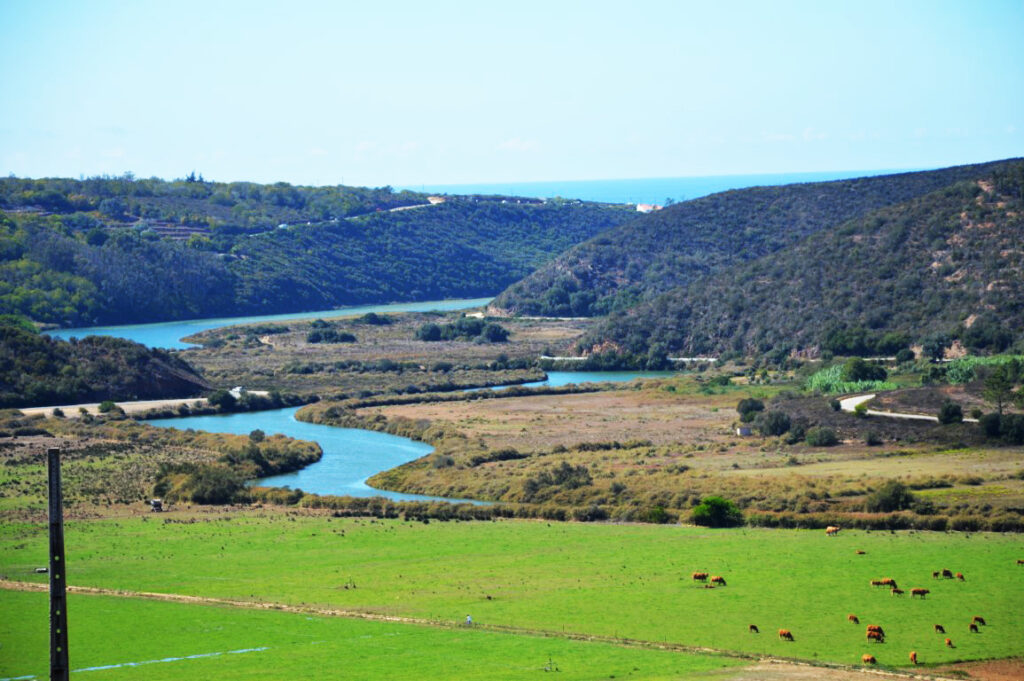The lack of water is causing problems in the rivers of Aljezur, such as Seixe, where hundreds of fish have died in recent weeks due to the impact of drought, bad weather and fires, said a local authority source.
António Carvalho, councilor of the Aljezur Chamber responsible for the Environment, explained to the Lusa agency that the lack of water in the rivers is causing the tides to carry sediment and block the exit to the sea from these water courses, creating small areas where the fish become blocked and end up dying.
The lack of water is also compounded by its lower quality, due to the debris carried away by the last rains and resulting from the fire that broke out in Odemira in August and later spread to Aljezur and Monchique.
«Around four weeks ago, there were more intense tides, which covered the mouth of the river [Seixe, also called ribeira] in Odeceixe», said the councilor, stressing that the situation also occurs at the mouths of the Aljezur rivers, which flow into in the Atlantic Ocean at Amoreira and Bordeira beaches, both in that municipality.
António Carvalho stressed that this phenomenon is a «consequence» of the lack of rain and water that affects the Algarve and Baixo Alentejo and is «inevitable» because, «sooner or sooner, the mouth of the river is covered» due to « sand that is being deposited more and more” at the mouth, he clarified.
In the Seixe stream, what happened was that «there was an entry of saltwater fish into a freshwater area, when there was a more intense tide, and then they were unable to get out, they stayed there and ended up dying», he explained. .
The Aljezur City Council has been monitoring the three streams on a weekly basis, together with the Portuguese Environment Agency (APA), through the Administration of the Hydrographic Region (ARH) of the Algarve, said the councilor, guaranteeing that, «to date, there has been no no worrying values».
«The concern has been going on for some time, for a year or so that we spoke with APA/ARH and ICNF [Institute for the Conservation of Nature and Forests], and we have even held some field meetings with them, to see whether we find solutions that are more or less definitive, or more or less effective, in order to guarantee that the mouth of the river remains open. But it is difficult given this reality of lack of water», he acknowledged.
António Carvalho observed that the sediments have been removed, with specific interventions with machinery, to allow the reopening of the mouth of the rivers in Aljezur, and added that the Odemira Chamber has already started work to reopen the mouth of the Seixe river, which divides the two municipalities and the Algarve of Alentejo.
«Yesterday [Tuesday] an intervention was already made, by the Chamber of Odemira. ARH monitored it, ICNF obviously did too, but as these entities do not have the financial capacity to carry out the contracting, it is the councils that end up replacing them", he said, adding that the Aljezur Council will carry out the next intervention on the river.
The councilor of the Aljezur municipality stated that the Odemira City Council rented a rotating machine to remove the sand and open the mouth of the river, but considered that this was a "very short-lived" intervention, because the sea will once again drag sediment and the mouth will become blocked again.
António Carvalho also announced that the municipalities of Aljezur, Odemira and Monchique laid the foundations for a collaboration aimed at creating an integrated landscape management area on Monday.
This partnership will bring together parishes and local associations to «intervene in the landscape mosaic, create a more resilient area and rethink the forest» in a scenario increasingly marked by drought and lack of water, he concluded.



















Comments